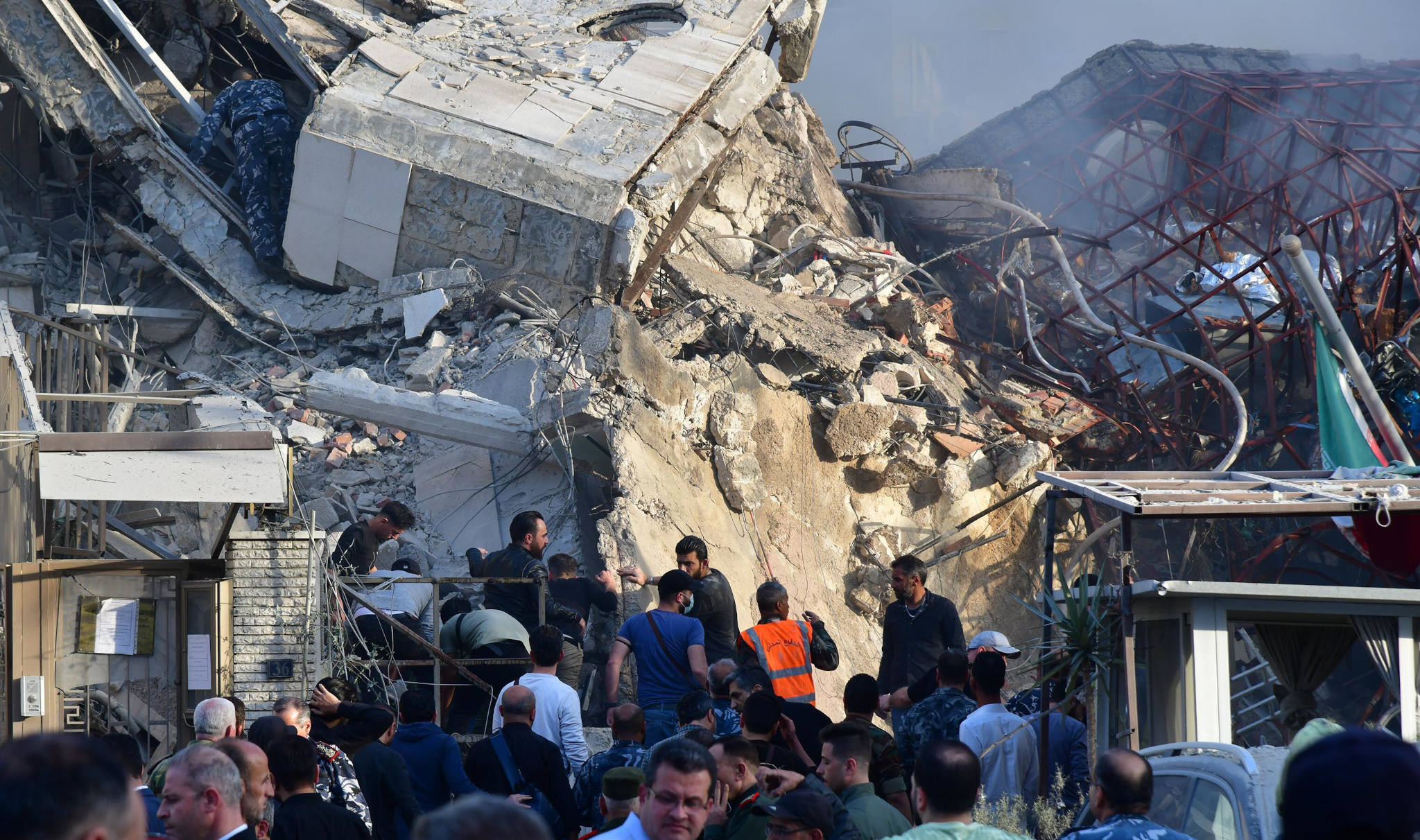Rishi Sunak’s decision to deploy RAF warplanes to shoot down Iranian drones heading for Israel raises serious questions about international law and the spectre of Britain’s involvement in a widening conflict in the Middle East.
The contents of Britain’s military cooperation agreement with Israel signed in 2020, and a defence pact signed a year later, are secret but they are not believed to require Britain to protect Israel if it comes under attack.
A more recent “2030 roadmap for UK-Israel bilateral relations” vaguely commits London to “tackle shared threats” with Tel Aviv.
Sunak justified the RAF’s deployment as “saving lives not just in Israel but in neighbouring countries like Jordan as well”.
His defence secretary, Grant Shapps, went further and described Iran’s combined drone and missile attack on Israel as posing “a threat to civilian lives in the Middle East”.
They delivered these sweeping justifications of British military activity seemingly unaware that this rationale would also oblige them to intercept Israel’s air strikes into Gaza, which have killed many thousands of civilians.
Shady business
Britain’s contribution to the downing of Iranian drones appears to have been minimal, more a self-serving diplomatic effort than one of military necessity.
Tellingly, Tehran gave advanced warning of its attacks, and said it was aimed at military targets.
These were Nevatim air base (which houses the F-35 jets that bombed Iran’s consulate) and Mount Hermon spy station in the illegally occupied Golan Heights.
Iran inflicted limited damage, with the IDF claiming to have shot down 99 per cent of the projectiles.
Significantly, Sunak suggested that the decision to order RAF Typhoons based in Cyprus to destroy “a number” of Iranian drones over Syria and Iraq was an extension of Operation Shader.
That’s Britain’s ongoing, but largely unseen, campaign of air strikes against the remnants of Islamic State group.
In a late-night statement on Saturday which raises more questions than it answers, the Ministry of Defence said: “In response to increased Iranian threats and the growing risk of escalation in the Middle East, the UK Government has been working with partners across the region to encourage de-escalation and prevent further attacks.”
It added: “We have moved several additional Royal Air Force jets and air refuelling tankers to the region. These will bolster Operation Shader…In addition, these UK jets will intercept any airborne attacks within range of our existing missions, as required.”
As Drone Wars has long warned, there is a threat of “perpetual war” if the RAF adopts an ever expanding mission statement for Operation Shader.
‘Not our quarrel’
This comes amid a dangerously creeping definition of “self defence”. British ministers suggest it can now encompass any potential threat – direct or indirect – to UK interests, especially but not only in the Middle East.
Thus, the Conservatives can justify military responses to Houthi attacks on commercial shipping in the Red Sea, and its bizarre decision to deploy an aircraft carrier to the South China Sea.
The development of modern weapons systems and surveillance technology could make such ‘self-defence’ sorties easier and easier, however distant the alleged threat.
By contrast, Iran says launching missiles and drones against Israel was in response to a more proximate threat: Israel’s attack on its consulate in Damascus that killed seven senior Iranian figures, including two top generals.
Asked what the British government would have done if a hostile state flattened one of its consulates, UK foreign secretary Lord Cameron admitted: “We would take very strong action”.
He added: “Countries have a right to respond when they feel they’ve suffered an aggression.”
Sir Richard Dalton, former UK ambassador to Iran, has said Israel’s attack on the consulate in Damascus was “unlawful”.
Going further, he said he would “rather” British forces had not taken part in the operation against Iranian missiles. “This is not our quarrel”, the retired diplomat insisted.
Israel’s bombing of the consulate was widely criticised, although Britain failed to condemn it – a step that Iran says would have reduced its need to retaliate.
No change ahead
The government’s notion of Britain revisiting its historic role as “world policeman” seems to be wholeheartedly shared by the Labour leader, Keir Starmer.
Last week he chose the right-wing Daily Mail to declare what he called his “Unshakeable… Absolute…Total” commitment to the Trident nuclear “deterrent”.
That’s a weapon’s system which is neither independent nor a deterrent.
It would not function without continuing US support and it will not deter a hostile state in any foreseeable conflict.
Hundreds of billions of pounds – the new Trident system is estimated to cost more than £200 billion – are being diverted from desperately-needed spending on Britain’s civil society.
It also takes money from other weapons systems, such as drones and countering cyber attacks, so much cheaper and more effective than an arsenal of nuclear warheads.
Their possession by Britain, as Tony Blair himself wrote in his memoir, A Journey, amounts to more of a status symbol than a remotely usable British weapon.
The National Audit Office and the Commons Public Accounts Committee, time and again (and most recently today) point to the MoD’s hopelessly optimistic estimates of the cost of both nuclear and conventional weapons projects, estimates sabotaged as much by mismanagement as by over-ambitious plans.
Sunak told the House of Commons this afternoon it was “not a time for hyperbole”, ignoring his own advice as he enthusiastically defended Britain’s latest military intervention role in the most volatile region in the world.
Judging by his own recent rhetoric, not least by shamelessly championing a most horrendous waste of public money, Starmer will have the same approach to the military and foreign affairs should he win the next election.


